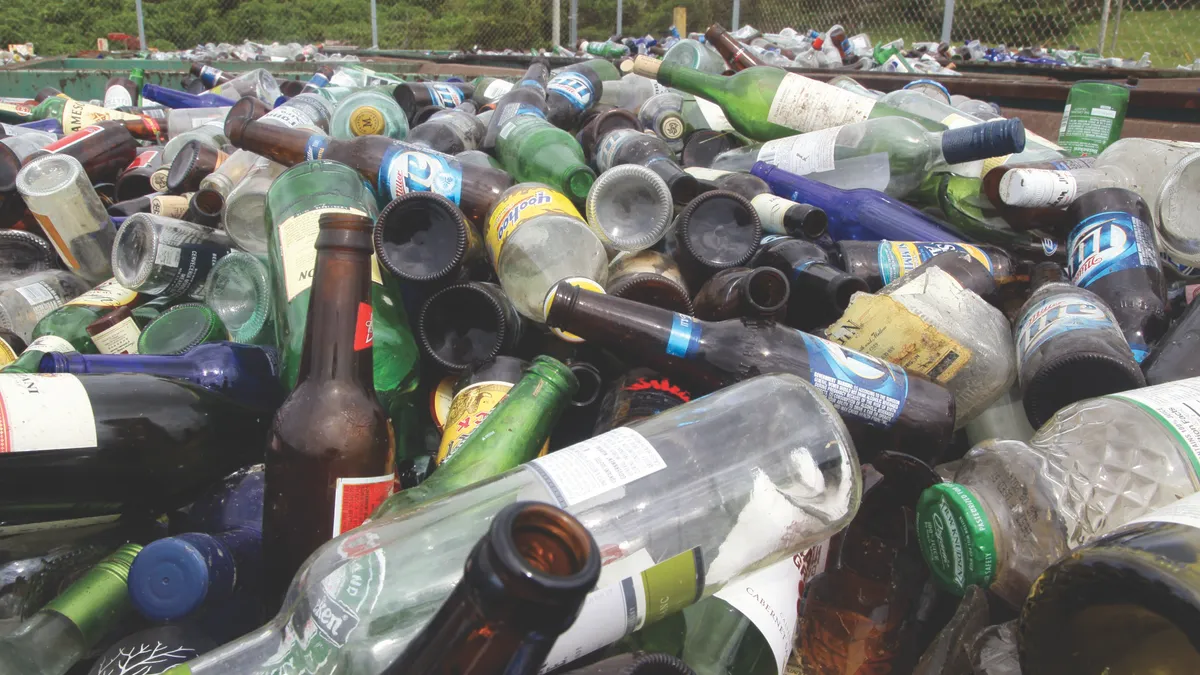Dive Brief:
- The Illinois EPA has released a statewide survey asking county recycling coordinators to share information regarding types of recycling and diversion programs, as reported by Waste Today Magazine.
- Once surveys are completed — the deadline is Oct. 19 — the state will review them and utilize the information to develop a "statewide waste diversion collection location tool" as a resource for residents seeking places to recycle common household items.
- The state will make survey results public once they're reviewed, and anticipates the tool will be finalized by early 2018.
Dive Insight:
Recycling centers are not permitted by the Illinois EPA, therefore a tool like this is crucial for state officials to not only keep track of operations, but to also educate the public on recycling opportunities. Call2Recycle highlighted the issue of accessibility in a Dec. 2016 post on Waste Dive, noting that without awareness of the various recycling opportunities surrounding them, consumers are much more likely to toss recyclables in the trash — despite how much they might wish to be waste conscious.
Digital tools have been a key way to keep consumers in the loop on accessibility, and Illinois is not alone in its efforts to develop an online resource. Nonprofit ReFED recently released two interactive tools to help consumers improve understanding of food waste and a number of haulers have rolled out customized mobile apps for consumers to keep up on collection schedules and service changes. Even those in the industry have benefited from the trend of digital tools, as organizations have worked to develop new ways to train and teach professionals. Just over the summer, the Glass Recycling Coalition released an online tool to help recycling program managers assess glass handling — offering calculators, case studies and other key resources.
Waste policies in Illinois have not made many headlines since a bill to revamp the state's e-waste system was pushed forward in May. Other accessible documents on the state's materials recycling assessments date back to 2015. Though flying under the radar is not necessarily a bad thing, it's possible that the new diversion tool will bring an influx of other state-driven initiatives to boost awareness and participation in diversion programs, bossting the state's profile.















